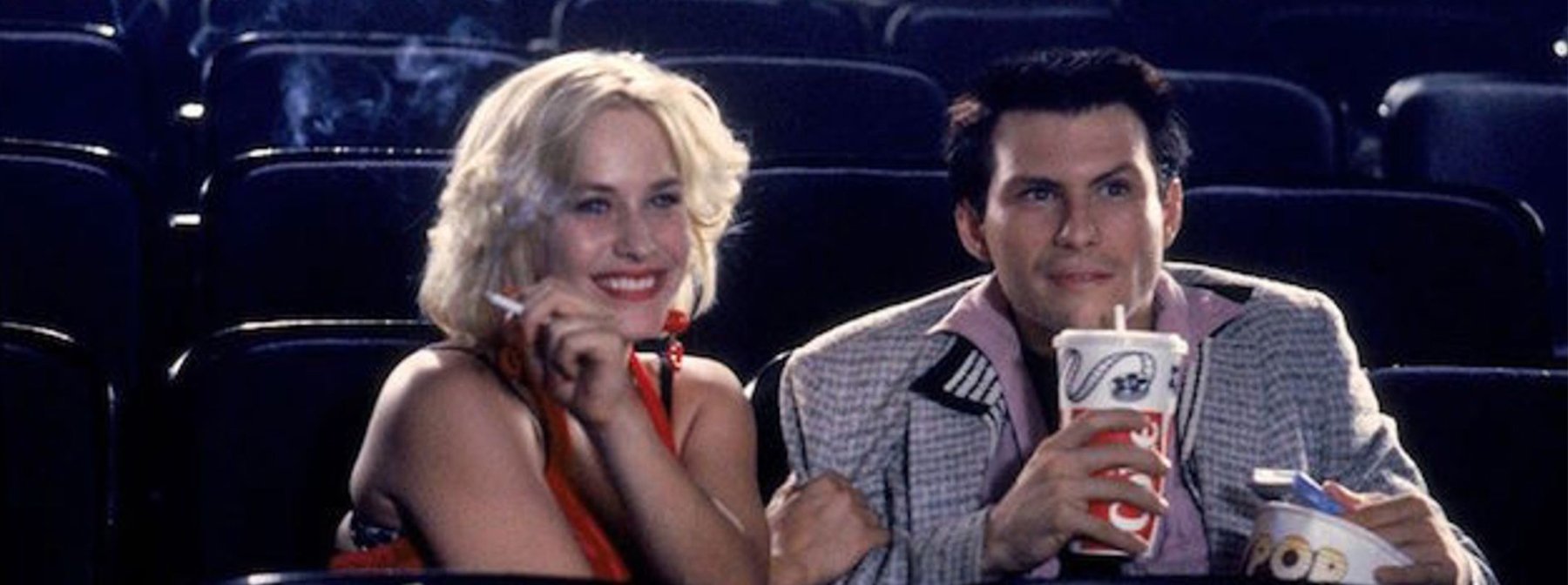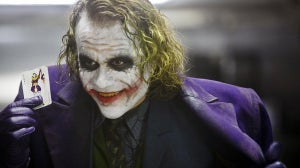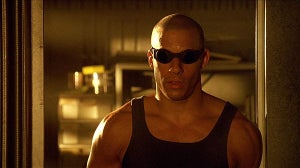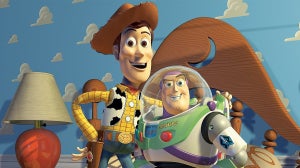
Expanded from his now partially destroyed short My Best Friend’s Birthday, True Romance was the first screenplay Quentin Tarantino sold to Hollywood – for $50,000 – helping fund his directorial debut and career-making noir, Reservoir Dogs.
However, tonally True Romance couldn’t be more different to Tarantino’s other early writing even though it contains a litany of the hallmarks that would become his signature – stylish shootouts, snappy pop culture obsessed dialogue and a menagerie of supporting characters from another world.
A fizzy drink of a road movie, it doesn’t possess the cynical fatalism of Reservoir Dogs or the Godardian post-modern irony of Pulp Fiction, ultimately having more in common with the Oliver Stone directed freefalling ultraviolence mania of Natural Born Killers.
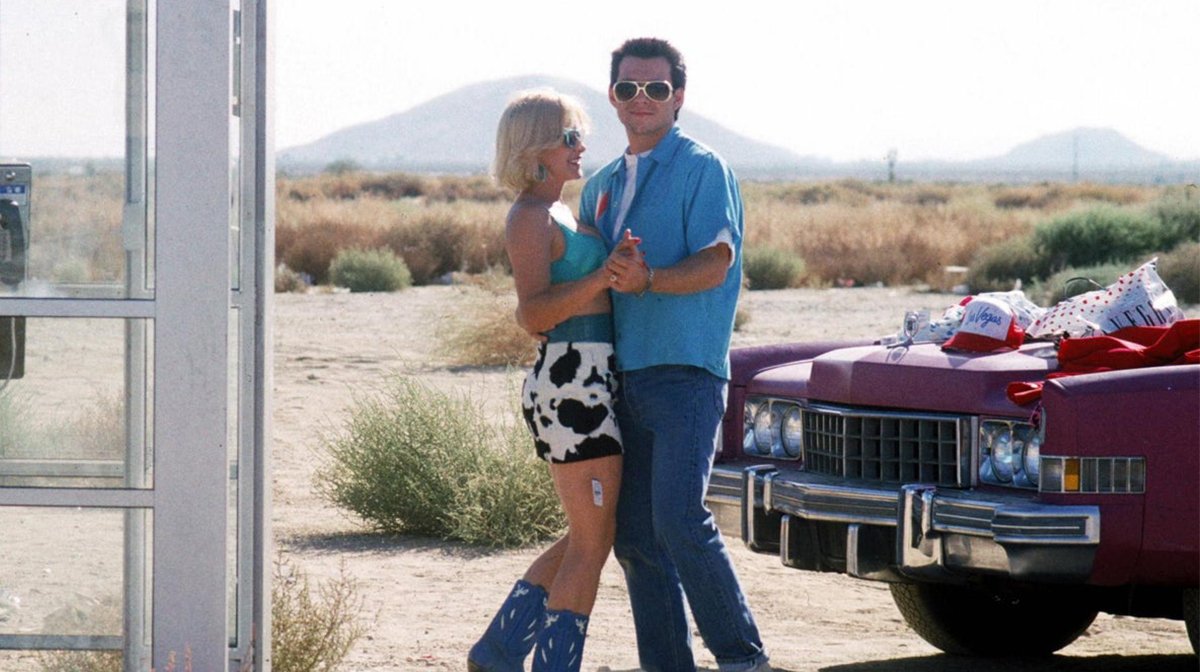
Tony Scott, enthralled by and purchaser of the script, was on board to direct. At that time, Scott’s reputation was one of a hack for hire to make well-crafted, if intellectually vacuous, summer movies that played broadly and loudly.
In the shadow of the acclaim elder brother Ridley had received for films such as Alien, Blade Runner and Thelma And Louise, the younger Scott was a pop visual artist, coating his films in luscious candy colours and editing them with a snappy freneticism, an effect that was something akin to the world’s most exhilarating theme park ride.
It’s an egregious fact that his work went unloved by most critics during his lifetime.
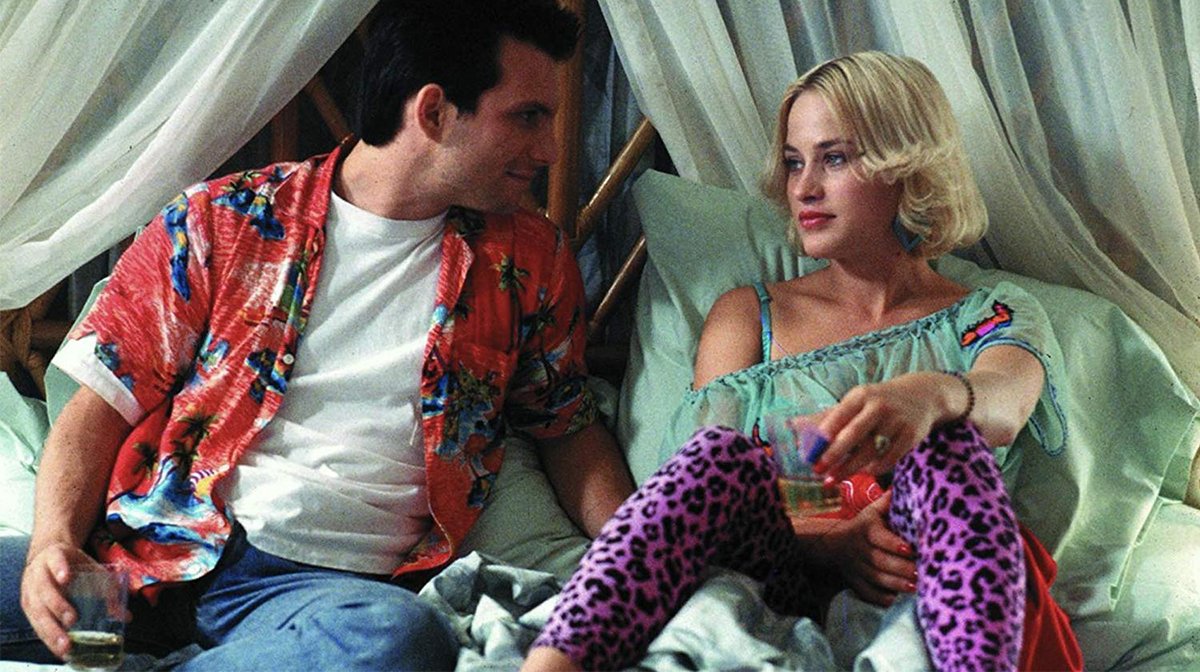
True Romance, merging the cynical irony of Tarantino and the romantic adventure of Scott, proved to be a match made in heaven. Scott, a genre master, understood the pulp origins of the screenplay and how Tarantino wrote in archetypes, not unlike the classic Westerns they were both brought up on.
The combination of the two styles should not have worked. Whilst Scott is known for his bombast when it comes to set-pieces, he has always treated the drama of his films with the upmost sincerity.
Man On Fire is a serious rumination on vengeance and violence that in other hands is John Wick, Crimson Tide is a class drama set during a military crisis on a submarine, and the ‘serious’ bits of Top Gun are staged as melodramatically as possible.
This is in stark contrast to Tarantino’s general method of heightening everything far beyond reality, his scenes often becoming some kind of metaphysical comment on cinema and themselves, devoid of the kind of traditional dramatic tension Scott loved.
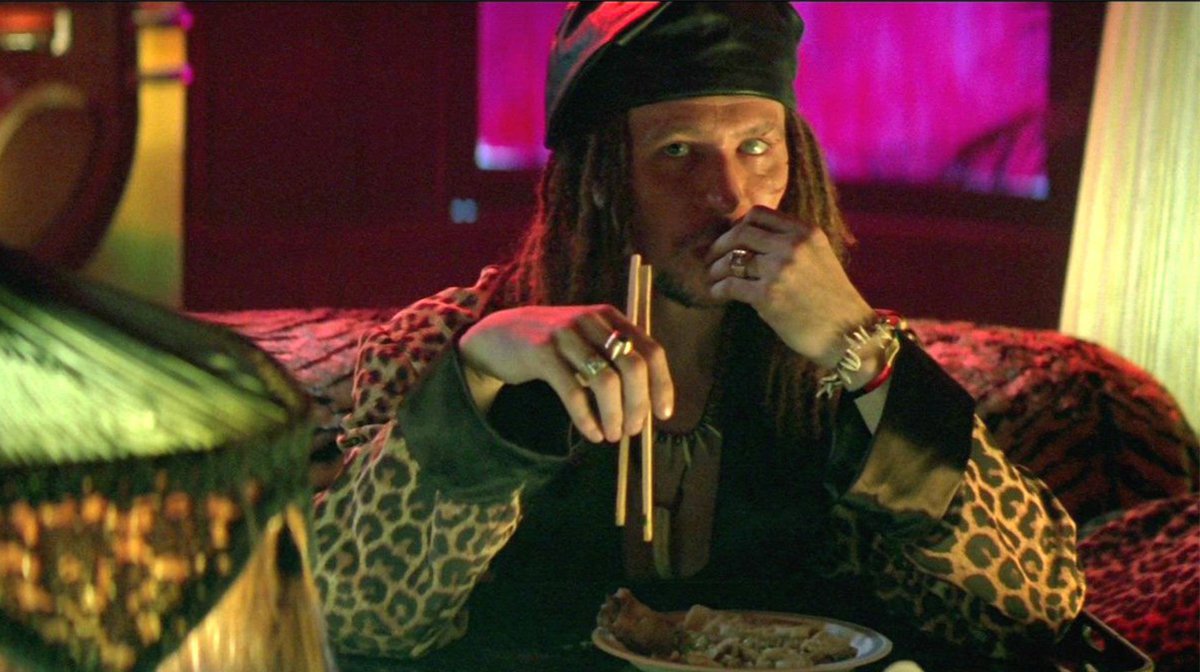
Scott made two major changes to the script he bought from Tarantino – to the structure and the ending. Initially True Romance had a non-linear structure that flicked around from character to character much in the same manner of Pulp Fiction, but after attempting an edit in that form, Scott decided to tell the story in chronological order as he was having difficulty fitting the story together cohesively.
The other alteration to Tarantino’s original vision was to the ending. True Romance tells the story of Clarence and Alabama, an Elvis fanatic and call girl who promptly marry each other and end up on the run from the mob with a suitcase full of cocaine. The written ending, in true Tarantino style, called for the central couple to die in a hail of bullets, but Scott couldn’t bear the thought of killing them off so they lived to the closing credits.
The change in the ending is embodying of both men’s aesthetics and how combined, it created something quite beautiful. Tarantino outside of Reservoir Dogs and Jackie Brown, has always treated death with a kind of slapstick infantilism, reduced to exploding limbs and blood swabs exploding like it’s Bonfire Night – if it wasn’t sadistically violent, then it wasn’t a death worth having.
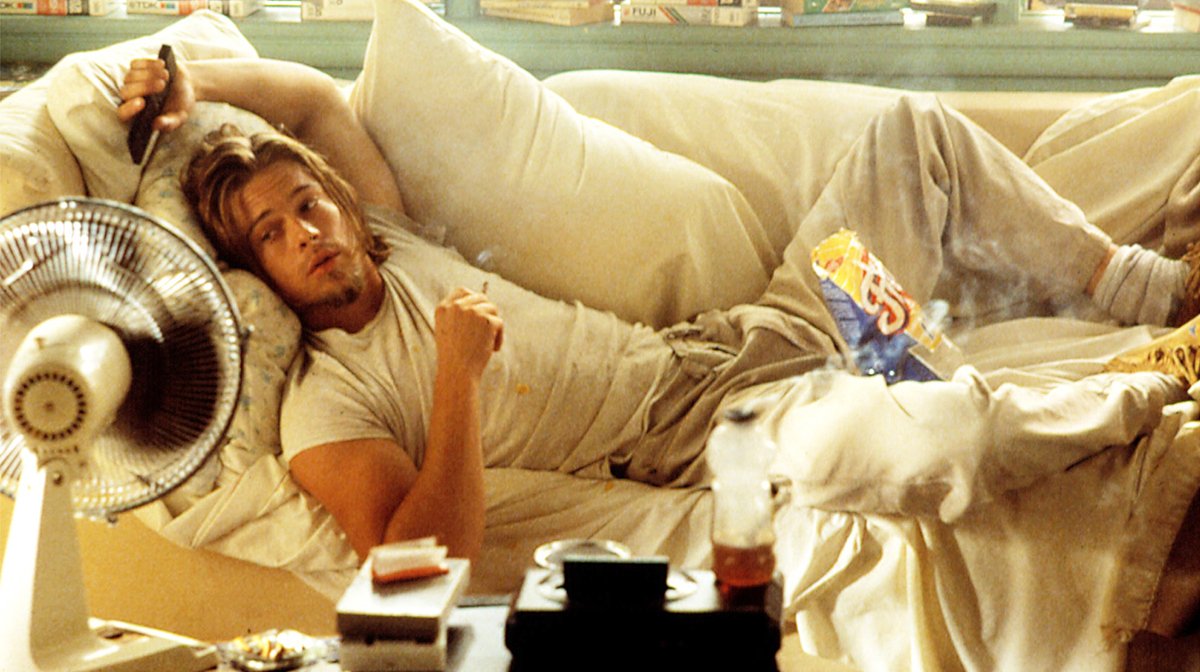
Scott also uses his craft to hone and mature Tarantino’s writing so that the characters are more than ciphers, so that the audience have an emotional connection to them - when the punches land, they’re felt, and when life is threatened it’s not as a casual aside or excuse to namedrop another reference to an obscure Italian Western. Whatever heart is, True Romance has it and that’s not something you can say very often about a film authored by Quentin Tarantino.
The road movie, whilst a complete financial flop at the time has become established as a firm cult classic which is interesting considering what a quintessentially nineties oddity the film is. There’s a slightly retrograde approach to female agency, a white Rastafarian complete with gold grill, and a cast that is a who’s who of nineties talent including Christian Slater, Patricia Arquette, Tom Sizemore, Michael Rapaport, Val Kilmer, Victor Argo and Bronson Pinchot.
That’s without mentioning the legendary Dennis Hooper and Christopher Walken, as well as future leading man Brad Pitt as a comic stoner. The late, great gentle giant James Gandolfini also plays a bruising hitman.
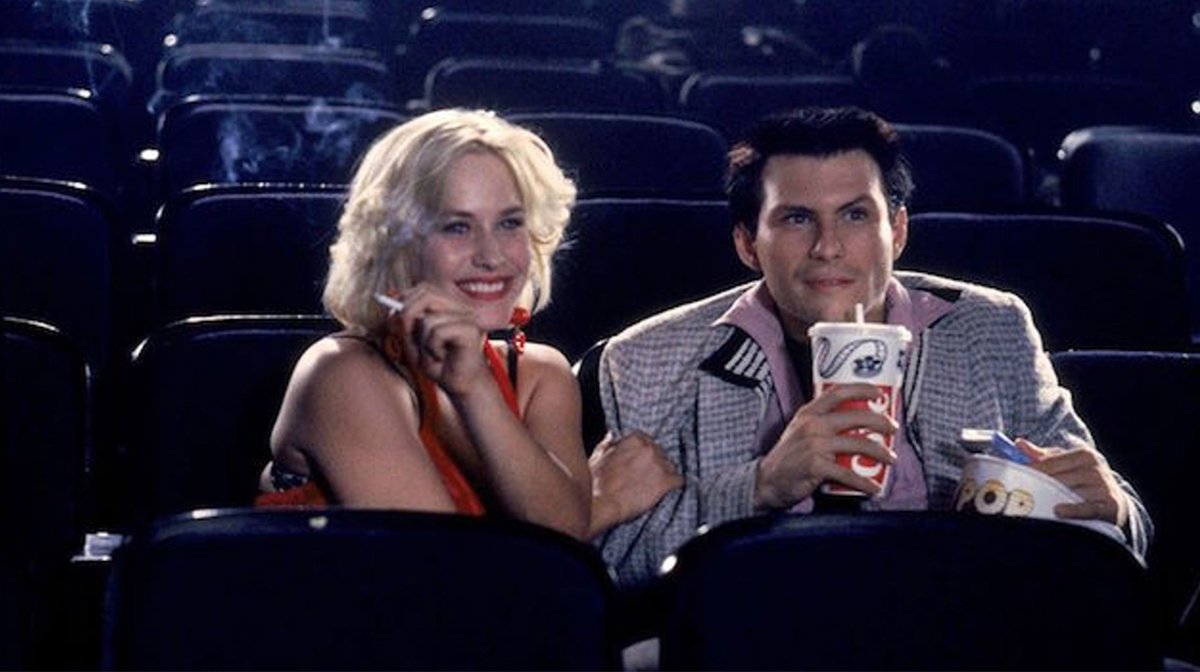
Ultimately, what True Romance is, is simultaneously a throwback to the energetic Peckinpah actioners of the sixties and seventies, twisted into something undeniably modern through its two authors who love a bit of pulp violence, luscious action and visceral amorality all thrown into the movie blender.
True Romance is out now on 4K, Blu-ray and Zavvi exclusive 4K deluxe steelbook.
For all things pop culture and the latest news, follow us on Instagram, Twitter, Facebook, YouTube, and TikTok.

